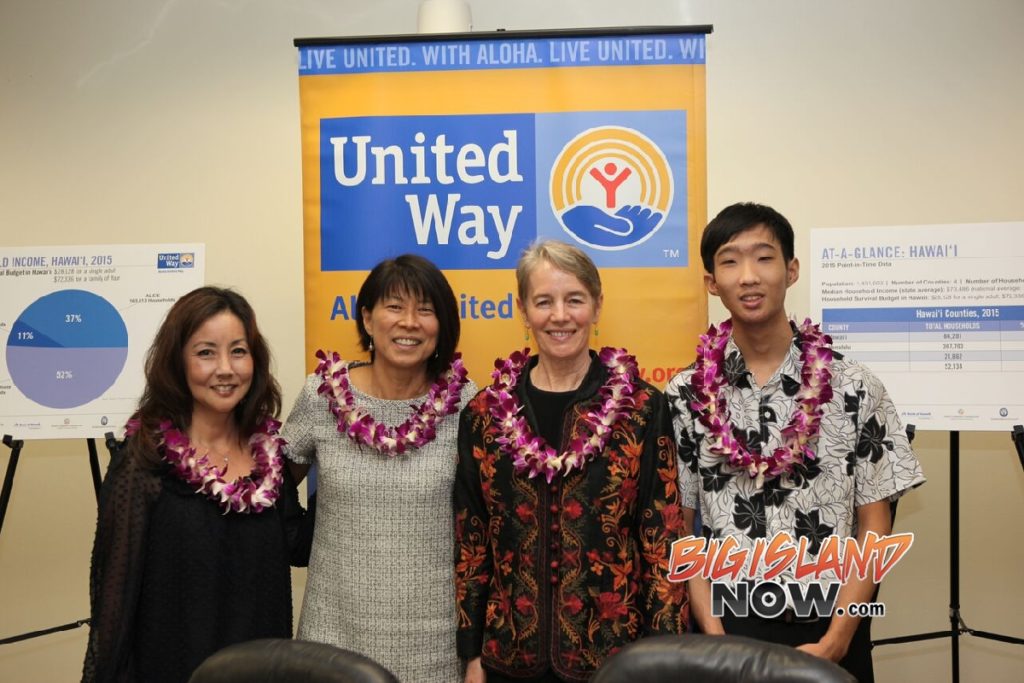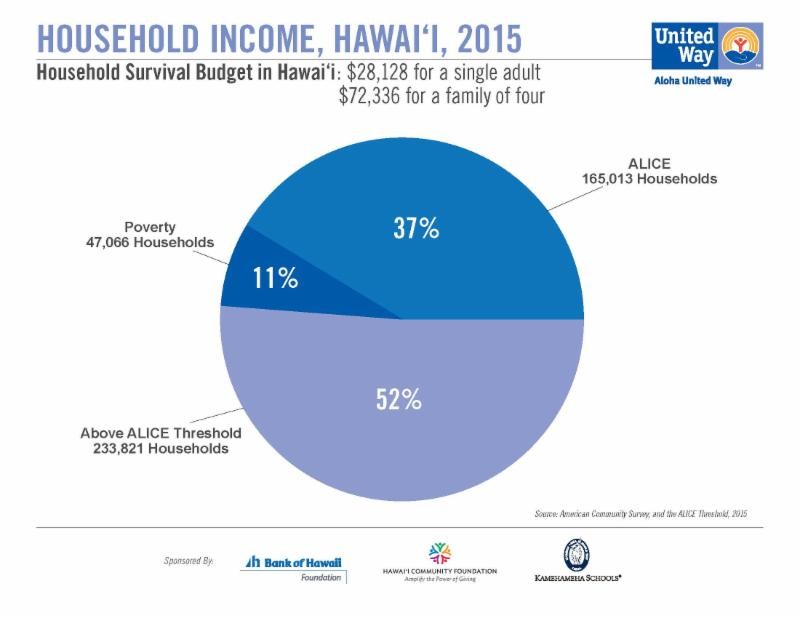Almost Half in Hawai‘i Unable to Pay for Basic Necessities
The Aloha United Way, with the help of sponsors, Hawai‘i Community Foundation, Bank of Hawai‘i, Hawai‘i Community Foundation and Kamehameha Schools, released its United Way Asset Limited, Income Constrained, Employed (ALICE) Report – Hawai‘i, during a press conference at the state Capitol on O‘ahu. The press conference was attended by top business executives and state Department of Health Director Virginia Pressler.

The ALICE report press conference was attended by top business executives and state Department of Health Director Virginia Pressler. Courtesy photo.
ALICE represents hardworking people that interact with others every day, the report disclosed. They are the people of our community who are child care providers, wait staff, cashiers, teaching assistants and others that work one, two or even three jobs yet still remain only one crisis away from being at greater risk of chronic health issues or loss of housing.
ALICE have income above the federal poverty level, but not enough to afford basic necessities including housing, child care, food, transportation and health care.
In Hawai‘i, there are 165,013 ALICE households (37% of total households) while another 47,066 households, (11% of total households), live below the federal poverty level. In total, 48% of Hawai‘i households are ALICE and below.
Everyone was ALICE, is ALICE, or knows ALICE. ALICE is a vital part of our community. When ALICE struggles we are all impacted, the report said. The consequences to the community are increased healthcare and infrastructure costs, increased employee absenteeism, higher insurance premiums, reduced economic productivity and much more.
“ALICE individuals and families constitute over one-third of Hawai’i’s population, and it is essential to the well-being of our state that we recognize their presence, acknowledge their struggles, and offer support and services that will help,” said Aloha United Way President and CEO Cindy Adams. “The report allows us to identify their challenges and, through cross-sector coalition-building, work toward solutions that are effective, sustainable and long-lasting.”
This report is a call to action to inform statewide policy, philanthropy and allocation of resources.
For more information and to view of a copy of the full report, visit Aloha United Way.















